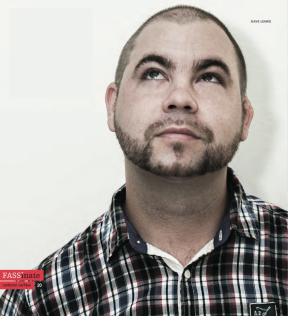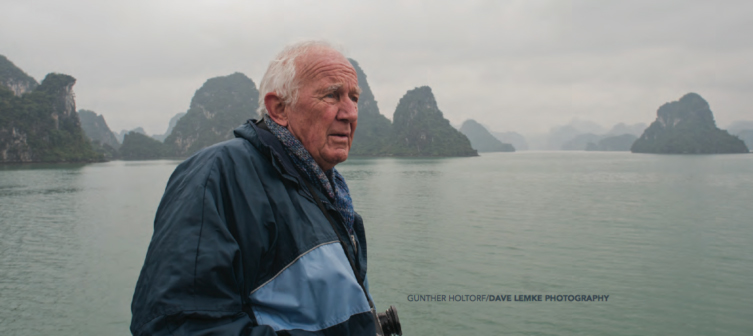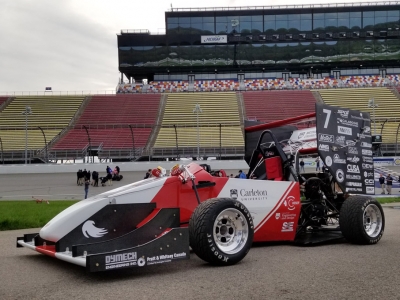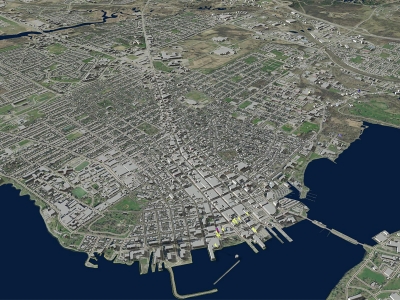A burgeoning photographer
When Dave Lemke (BA, English, 2008) was twelve years old, his father handed him a small, inexpensive Canon camera. The gift was given in advance of a whale-watching boat tour on a family trip to New England.
Young Dave Lemke took more than a hundred photographs with this camera, including a stunning image of a humpback whale breaching the ocean’s surface. With this photograph, a life-long passion was born.
Shortly after high school, twenty-year old Lemke embarked on an eighteen-month journey of self-discovery. While backpacking across Europe, he took more than a hundred rolls of film with his APC Canon Elph. “I sent most of my film back to Ottawa to be processed,” Lemke recalls. “My father went to one store to get it done, and the manager told him, ‘when your son returns from his trip, he has a job at our shop.’” This surprising job offer led to others, in Ottawa, Toronto, and Australia. Working in camera shops the world over, Lemke used these opportunities to deepen his understanding of the craft of photography and his own unique approach to it: “I allow my experience and eye to guide me. Obviously, with technology and post-processing techniques, things are a bit different, but in general, this is how I shoot.”
During his apprenticeship at camera shops, Lemke decided to complete an English degree at Carleton. Convinced that writing and photography share meaningful bonds of kinship, he felt that an English degree would provide him with skills that would play an important supporting role in his photographic career. The capacity to use words to tell stories and the practice of using images to document the world struck him as being part of the same artistic project.
Department of English Professor Andrew Wallace first met Lemke in a second-year survey of Medieval and Renaissance literature. He recollects being struck by Lemke’s intensity and engagement from the earliest sessions of the course:
“David was particularly skilled at imagining his way into the predicaments of characters under study. I was fortunate to teach him in two courses and to see these talents in each, but it was only when I had a chance to sit with him and his father before Dave’s departure for Australia that I learned he was also a talented photographer. Of course, this made me realize that his striking analytical intelligence and his skills as a photographer had been mutually influencing each other all along. His powerful grasp of the telling detail and his gift at imaginatively interpreting literary texts speak directly to the power of his photographic work.”
For Wallace, Lemke’s success serves as a reminder that we can arrive at professional destinations by unexpected routes.
“I think that there is such a thing as a calling. Dave was a smart, dedicated, and imaginative student who trained himself to see the world with both sympathy and critical intensity. His English degree required that he read widely, and demanded of him that he make a series of imaginative leaps into other lives and worlds. To see the world as clearly and intelligently as Dave does is a product of his having developed both his photographic skills and his imaginative intelligence.”
“Being artistic means being sensitive to things that many people might overlook, Writers use nuances in language to create emotional responses. Photographers see the play of light and shadow, and use their skills to capture a moment in time. Great writing and great images are not an everyday occurrence; indeed we are lucky to get a few in our careers. Perhaps the deep-seated drive within us to keep fingers to keyboard or to keep shooting is perhaps the most important connection between writer and photographer.”
— Dave Lemke
Learning to be a pro in Vietnam

Dave Lemke
After graduating from Carleton, Lemke moved to Hanoi with the intention of parlaying his previous jobs in the photography business into a full-fledged career.
“I was taking a big chance – a chance to leave a ‘job’ and instead begin a career. I had an idea of what it would take to be a successful photographer, but learning the context of how to do so in a foreign country was, and still is to this day, a big challenge.”
The risk paid off. Within his first few months in Hanoi, he was published in GEO Saison, a popular German magazine, and received contracts to shoot the Vietnam projects of Hyder Consulting – a consultancy company that played a role in the building of the Sydney Harbour Bridge, Federation Square in Melbourne, the Emirates Twin Towers in Dubai, and The Burj Khalifa. He has also shot for some of the world’s most renowned media syndicates, including the BBC, the Guardian (UK) and Lonely Planet.
His most celebrated project to date is one that was picked up by the British Broadcasting Corporation (BBC): a documentary of Gunther Holtorf’s 25-year road trip across the planet. A “modern-day Marco Polo” according to Lemke, Holtorf left Germany in 1989 in his Mercedes-Benz G-class wagon. His trip has yet to end: he has driven the world over, with no sponsorship and no breakdowns.

GUNTHER HOLTORF/DAVE LEMKE PHOTOGRAPHY
Lemke met the famous world-traveler while shooting a Mercedes-Benz event in Vietnam (the 199th country visited by Holtorf). The two hit it off immediately. “I got to drive with him for two days to Ha Long Bay, and by the end of our small trip he had given me permission to publish his untold story. My efforts at cold-pitching the story paid off when the BBC picked it up as a 5-minute documentary.”
The documentary made its debut at the same time as the 2012 London Olympic Games. In a single day, it received 1.2 million hits becoming the most-shared BBC page for the week, overtaking the Opening Games Ceremony.
Though photography is Lemke’s primary source of income, he has continued to nurture his appetite for documenting the world in words. To that end, Lemke hopes to extend his work with Holtorf by writing his travel biography. “If I am able to do this, no matter what else happens in my life, I am sure it will be my crowning achievement as a writer and journalist.”
When asked for some words of wisdom, Lemke answers by deferring to an admired colleague’s bracing paean to optimistic perseverance: “Jo Anne McArthur, an absolutely brilliant photographer involved in the animal rights movement, told me years ago, ‘There will come a point where you will want to quit, because it doesn’t seem to be working. Trust me, if you keep shooting and make it through that particular point, things will pick up.’ We all have peaks and valleys in our life and professional career, but Jo Anne’s words have rung true. The strength to persevere is one every artist should have.”
Friday, November 21, 2014 in Bachelor of Arts
Share: Twitter, Facebook



